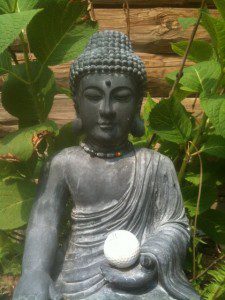New York Times columnist David Brooks, recently opined on the ubiquity of metaphors mentioning the work of Lakoff and Johnson as well as what sounds like an intriguing book entitled “I is An Other” by James Geary (soon to be on my reading table).
I’ve long appreciated the work of Lakoff and Johnson since reading their 1980 classic, Metaphors We Live By, in 1988. That book had a profound influence on my professional career, culminating in the publication of Wild Chickens and Petty Tyrants: 108 Metaphors for Mindfulness that explores the ubiquity of metaphors for mind, self, acceptance, and dealing with everyday life.
Brooks says:
Most of us, when asked to stop and think about it, are by now aware of the pervasiveness of metaphorical thinking. But in the normal rush of events, we often see straight through metaphors, unaware of how they refract perceptions. So it’s probably important to pause once a month or so to pierce the illusion that we see the world directly. It’s good to pause to appreciate how flexible and tenuous our grip on reality actually is.
I would suggest pausing more than once a month on this important topic. Why not do it everyday? And why not do it in the context of mindfulness meditation? When we meditate we might catch a glimpse of this “refracting” process; how we allow one mind moment to shape the next, and how we can perpetuate ourselves through time using memories as metaphors for what comes next. When we practice mindfulness we can see how we construct a world with thought, image, and emotion glued together by memory and anticipated future memories.
By spending time contemplating our metaphors, we might as Brooks suggests:
To be aware of the central role metaphors play is to be aware of how imprecise our most important thinking is. It’s to be aware of the constant need to question metaphors with data — to separate the living from the dead ones, and the authentic metaphors that seek to illuminate the world from the tinny advertising and political metaphors that seek to manipulate it.
I encourage this healthy skepticism regarding our thought and the language and images we consume on a near constant basis. As I have said elsewhere, we cannot understand our mind without metaphors, so we want to be mindful of what metaphors we employ and perhaps consider not “believing” any of them. Likewise, we cannot understand what it is to be a self without metaphors.
The more radical proposition is that what we regard as self is not just understood through metaphor but is itself, a metaphor. For more on that look forward to my forthcoming article in the journal of the Barre Center for Buddhist Studies.

